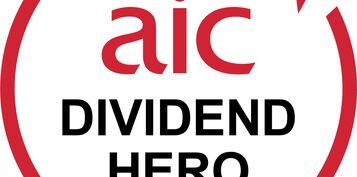In search of income
David Prosser on the investment companies with dividends that can compete with the best savings accounts.
Savers and investors searching for income have a little more choice these days: 13 consecutive base rate increases from the Bank of England have seen cash savings accounts become more competitive. However, while the best accounts now pay as much as 6% if you’re prepared to tie up your money for a year or so, they don’t offer any prospect of capital appreciation. Your cash just sits there, with inflation steadily eroding its value.
In that sense, rising interest rates have not changed the landscape for those who want to target both income and capital gains. They are still going to have to look at asset classes that involve more risk. And for that reason, new research from the analyst Stifel makes especially interesting reading – it lists more than 30 investment companies that currently offer a yield of more than 4%.
“New research from the analyst Stifel makes especially interesting reading – it lists more than 30 investment companies that currently offer a yield of more than 4%.”
David Prosser
Importantly, these funds invest primarily in equities – on stock markets in the UK and worldwide. That means they offer the potential for capital gains alongside generous levels of income. Dividends, of course, are an important element of the total return that equities generate, which is important to bear in mind if you’re intent on withdrawing your income. But there is scope for capital appreciation too.
Overall, there are 34 investment trusts currently on a yield above 4% – up from 25 in February when Stifel last ran a similar analysis – including 15 that offer more than 5%. They’re a pretty varied bunch, offering exposure to stock markets in the UK, continental Europe, North America and developing economies, as well as some specialist areas of the market. There are both small-cap and large-cap funds on Stifel’s list.
That’s not say the investment companies sector is the only place to find stock market-focused funds offering decent yields. However, there is something different about these funds in particular. Investment companies, uniquely, are allowed to retain some of the income they earn from their portfolios each year; these reserves can then be used to support dividend pay-outs in years when earned income is thinner on the ground.
In practice, that means the income offered by investment companies tends to be more sustainable. Managers have the ability to smooth out dividends over time, providing investors with greater security and visibility. Many are even able to raise dividends in years when other types of funds are cutting their payments.
None of this is guaranteed. The investment company has to have sufficient levels of reserves to support payments. However, in the case of its 34 high-yielders, Stifel says “the majority of them have dividend reserves and have a good record of delivering annual dividend growth”.
That additional security aside, investment companies are also allowed to subsidise dividend payments by dipping into capital. Doing so obviously reduces the fund’s capital returns, but if it is income that you’re prioritising as an investor, this may be a price worth paying.
Stifel’s verdict on its list of high yielders is that now could be a moment of opportunity. “For those investors prepared to take equity risk, we think the yields on these trusts are relatively attractive,” it says. Note the “equity risk” caveat, but they are certainly at least worth considering as you think about where your income and inflation protection is going to come from in the coming months and years.
The AIC’s Income Finder can help you identify investment companies that pay income on different months throughout the year, and build a virtual income portfolio.






